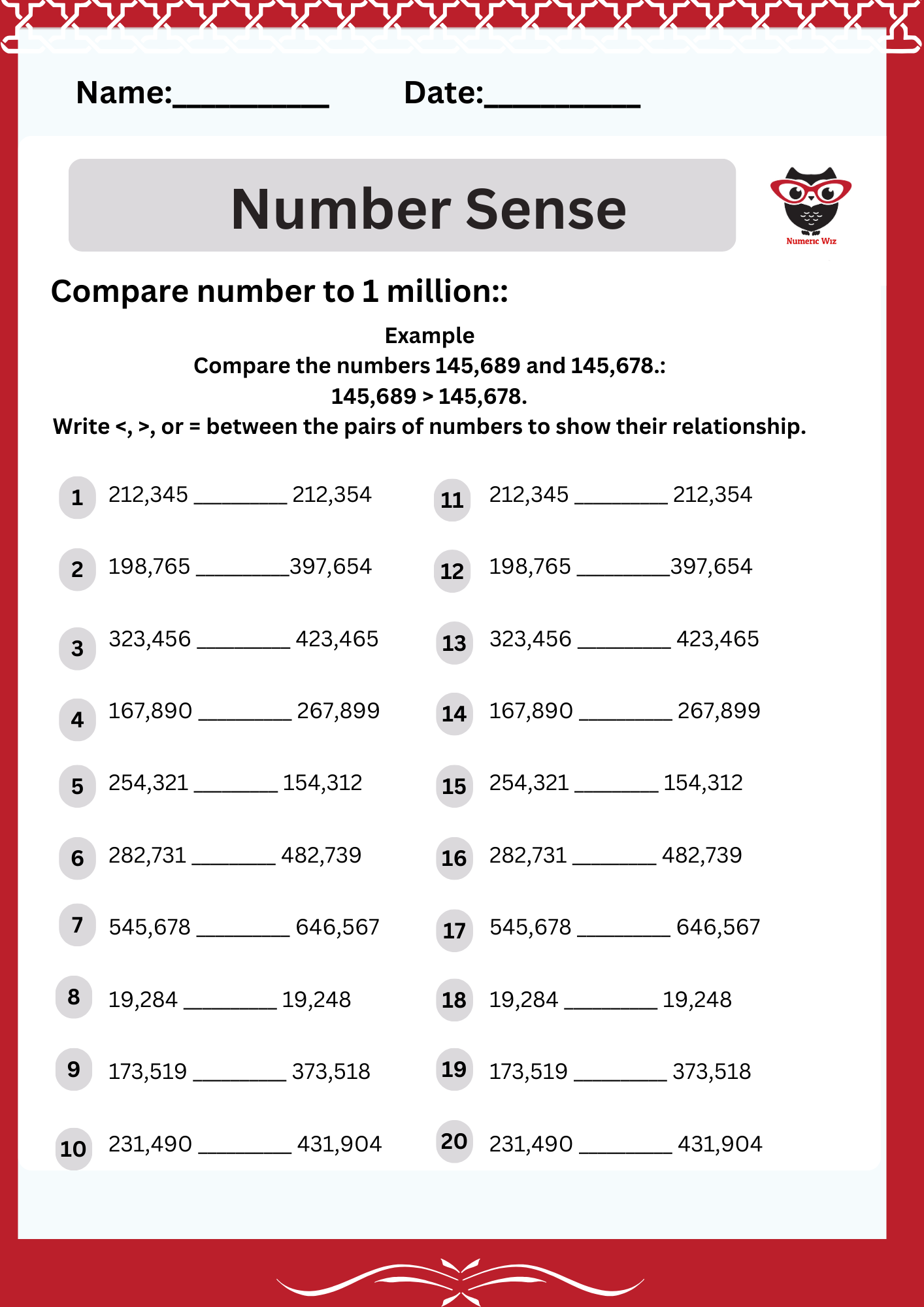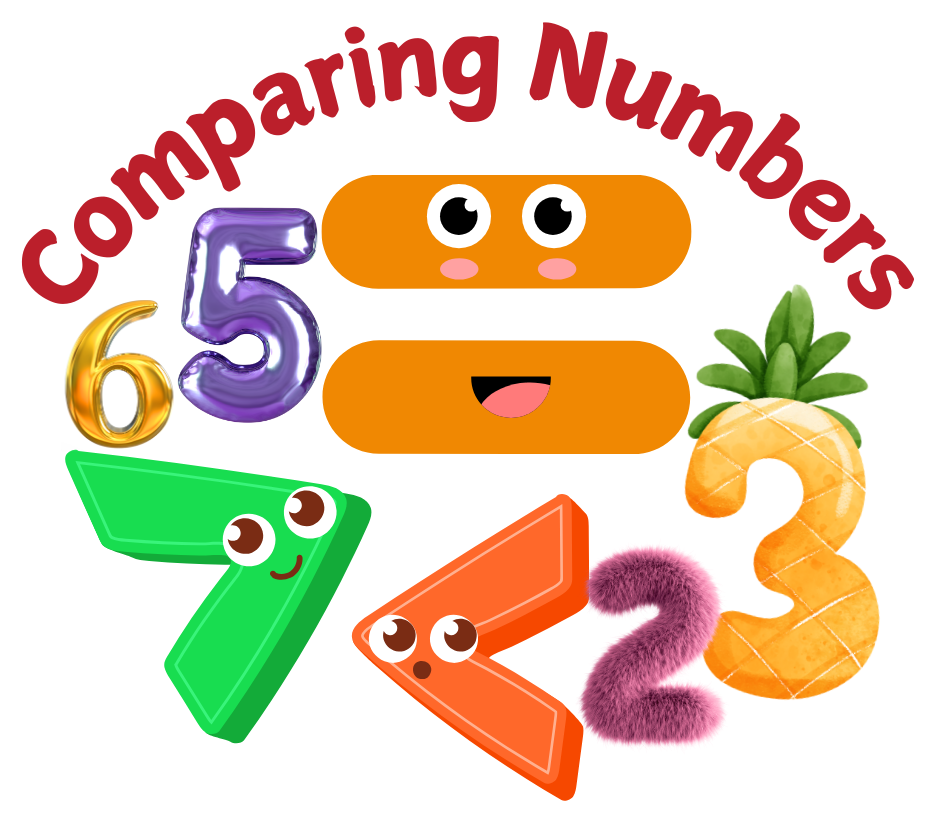

Comparing numbers means determining which of the two numbers is larger or smaller. To compare numbers up to one million, we look at the value of each digit starting from the highest place (hundred thousand, ten thousand, thousands, hundreds, tens, and ones). We compare digits place-by-place, beginning with the largest place value.
Compare 452,783 and 478,921.
Solution:
Solution: 452,783 < 478,921.
Real-life Scenario:
A fruit seller keeps track of apples sold over two weeks.
In Week 1, he sold 6,780 apples.
In Week 2, he sold 7,215 apples.
Question:
In which week did he sell more apples?
Solution:
Compare the numbers:
6,780 < 7,215
So, the seller sold more apples in Week 2.
Comparing numbers up to one million helps students develop number sense and understand the value of large numbers. This skill is essential for solving real-life problems, like analyzing data or managing budgets, and it strengthens critical thinking and decision-making abilities.

Let’s practice and evaluate your work together by comparing numbers.
For a limited time
